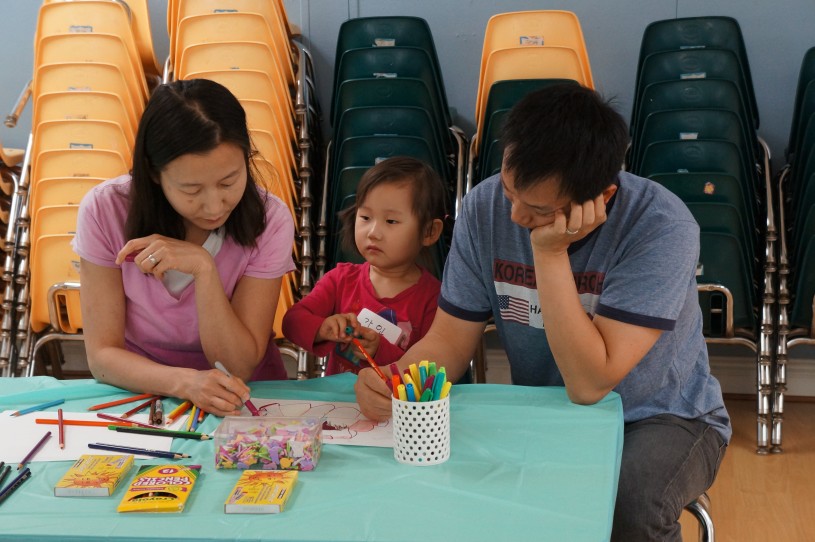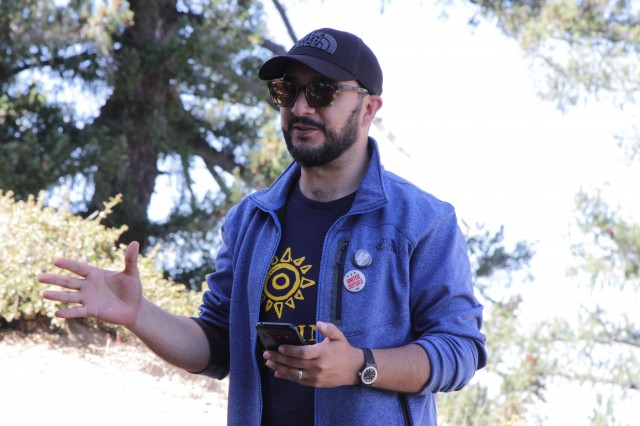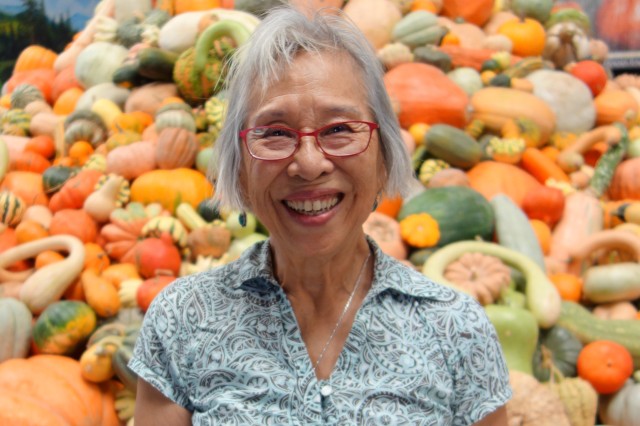Angelenos Building Community: Celebrating Katherine Yeom, KFAM
Empowering Korean American and Asian Pacific Islander families through culturally responsive programs
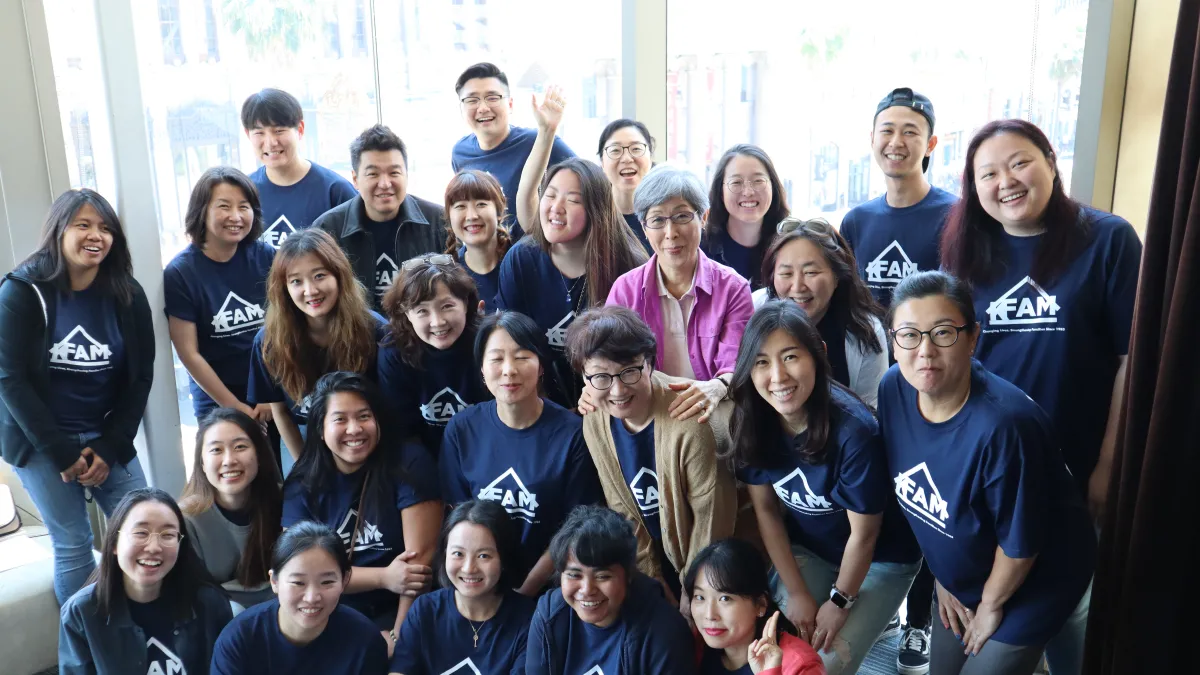
Angelenos Building Community is a series of stories from a diverse range of Angelenos and the work they do in support of their community in Los Angeles. The Natural History Museum of Los Angeles County is committed to uplifting the voices of community members who strive to create an equitable, accessible, and inclusive community for all. Here we highlight Katherine Yeom, Executive Director of Korean American Family Services (KFAM). Katherine shares with us how her organization serves over 6,000 adults and children each year with high-quality, holistic services that respond directly to the challenges among Korean and Asian American families undergoing trauma or adaptation and acculturation stresses.
KFAM is a Community Partner of NHM (What's this? Learn more).
Meet Katherine Yeom, Executive Director, KFAM

Katherine Yeom has been with KFAM since 2009. In 2015, she became the Deputy Director and the Executive Director in 2020. Under Katherine’s leadership, KFAM has double the number of staff and the annual operating budget since 2015. She is an ardent advocate for Asian and Pacific Islander communities, serving on the Board of the Domestic Violence Council of L.A. County, Faith Collaborative Council of L.A. County, and the Korean American United Foundation (KAUF). In 2020, Katherine was recognized as one of the Emerging Leaders in Koreatown by Congressman Jimmy Gomez. Prior to joining KFAM, Katherine was a middle school and high school teacher in the Los Angeles School District and internationally at Gyeonggi International School in Paju, South Korea. She received her BA in History and BS in Biological Sciences from UMBC and her MA in teaching from USC.
Tell us about kfam's mission and impact
KFAM was founded in 1983 with the mission to empower underserved Korean American and Asian Pacific Islander families through culturally responsive programs. KFAM specializes in culturally and linguistically responsive services to Korean, Asian, and Pacific Islander immigrant families, particularly those struggling with mental health, domestic and family violence, and acculturation stresses. KFAM is now the only foster family agency in the nation specializing in the needs of Korean, Asian, and Pacific Islander foster children.
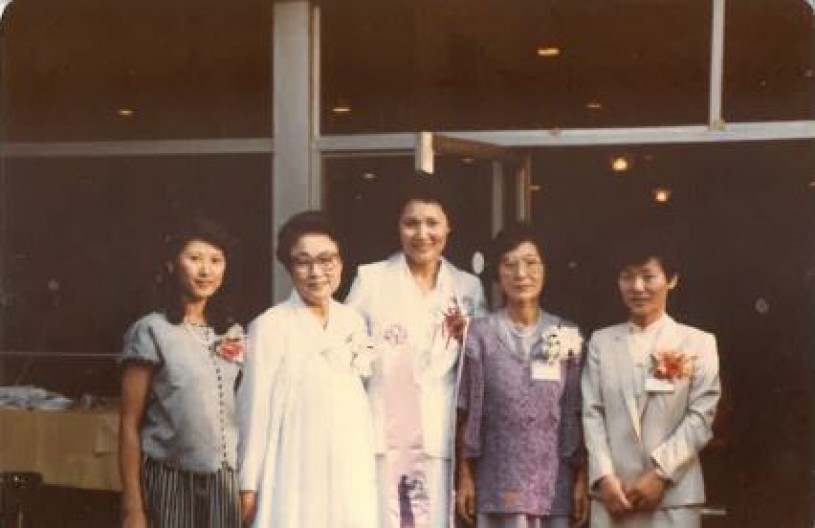
As part of our mission to advocate for the communities we serve, KFAM has stood in unity with other community organizations, political leaders, and community members to say NO to hate, violence and division. KFAM condemns racism and hatred that has threatened and terrorized our Asian communities. We must remember to unite together with the common goal to stop hate and condemn racism.
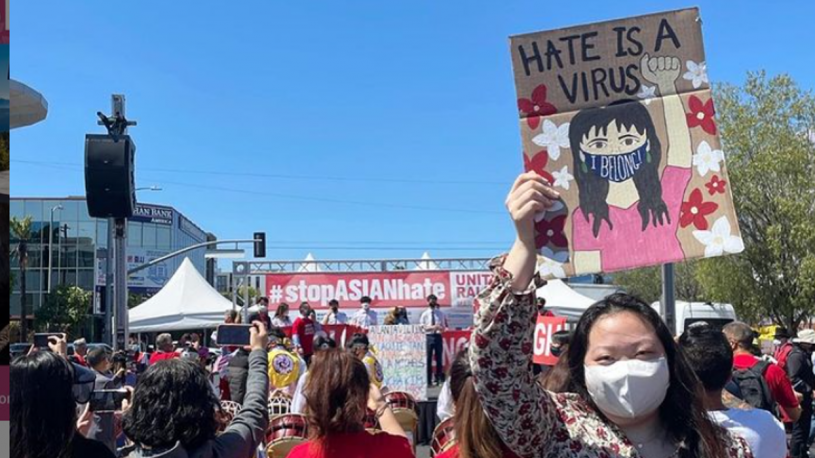
WHAT WOULD YOU WANT PEOPLE TO KNOW ABOUT YOUR ORGANIZATION AND HOW IT BUILDS COMMUNITY?
KFAM is always looking for new solutions to social services, expanding our services to the community, staying connected to community members, and breaking social stigma in mental health, family and domestic violence, and foster care.
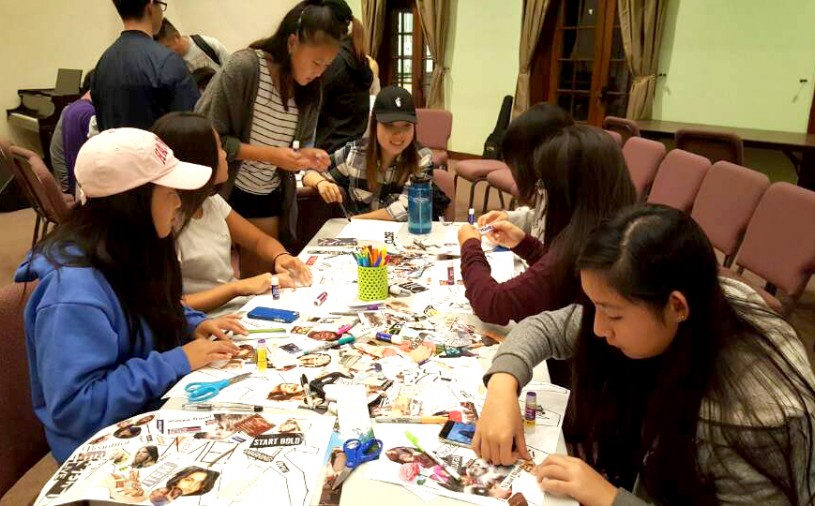
Who are the people who comprise your organization or community?
KFAM's staff are multilingual and multicultural who understand the community's needs and are dedicated to helping create safe and thriving homes. Our communities are the Korean, Asian, and Pacific Islander individuals and families in Greater Los Angeles.
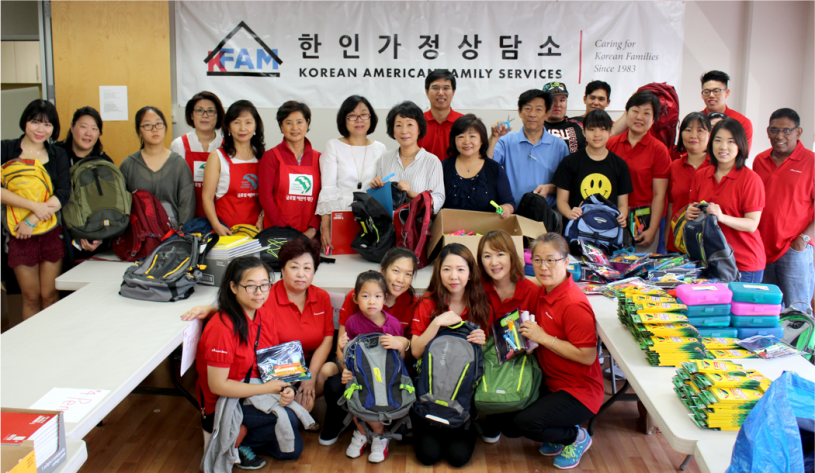
How have you continued to connect with your community during the pandemic?
KFAM shut our physical offices to the public due to the COVID-19 Pandemic, but we moved all our programs and services virtually. All our mental health counseling sessions, parenting classes, case management, and certified trainings were moved to video conferencing platforms. We wanted to make sure our Community members were safe, safe, and healthy. KFAM held CoronaBlue seminars and group counseling sessions to talk about the mental stress and anxiety caused by the pandemic. We also created a special youtube channel filled with coping skills and self-care tips. In addition, KFAM gave out over 338 safety boxes filled with PPE and cleaning supplies, 350 visa gift cards to buy basic necessities, 100 culturally competent Asian food boxes, over 100 boxes of diapers and formula, and over $370,000 in financial pandemic relief to our clients. We wanted to ensure our communities were being taken care of during these unprecedented times.
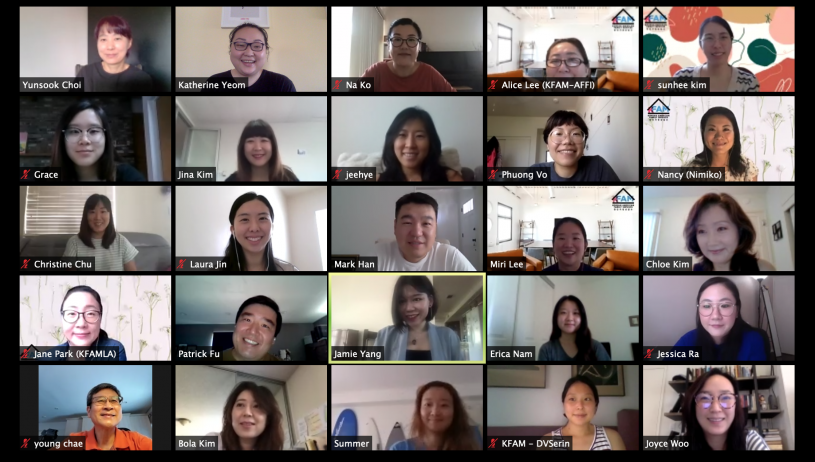
From your perspective, what concerns your community the most?
Our community members are hesitant to ask for help because of the social stigma around KFAM's core services in Mental Health, Family and Domestic Violence, and Foster Care. I wish we could get rid of these barriers so that people would come to us for help and support. KFAM focuses on bringing more awareness, outreaching and educating the community to overcome these obstacles. The more we talk about these social issues, the easier it will be for individuals to ask for help. People go to the doctors when they are physically in pain, why don't we get professional help when we are mentally in pain?
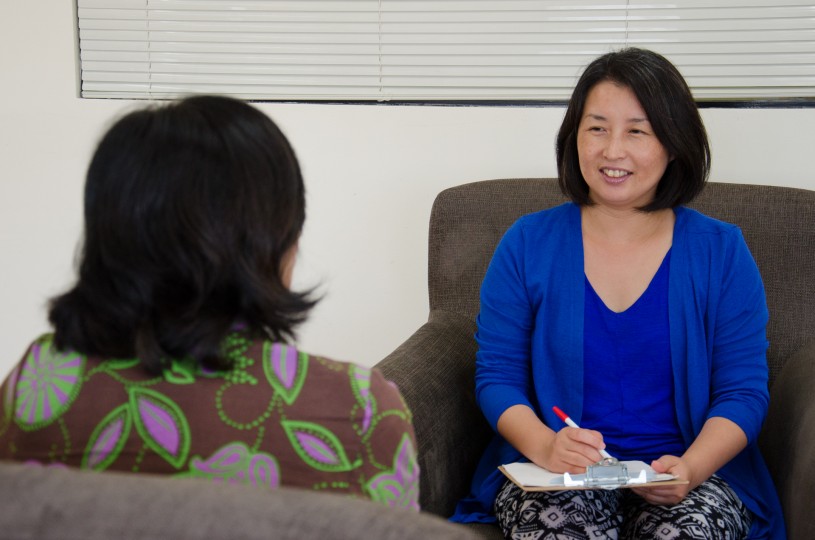
What has your community taught you?
One of the biggest things I learned about our community during the COVID-19 pandemic was the love and passion of our community. When KFAM did a fundraiser to provide basic necessities for community members, they were there. When KFAM asked for volunteers, they were there. When we need individuals or families to provide safe, nurturing, and culturally competent homes for foster children, they were there.
Our community comes together as one during difficult times to uplift one another.
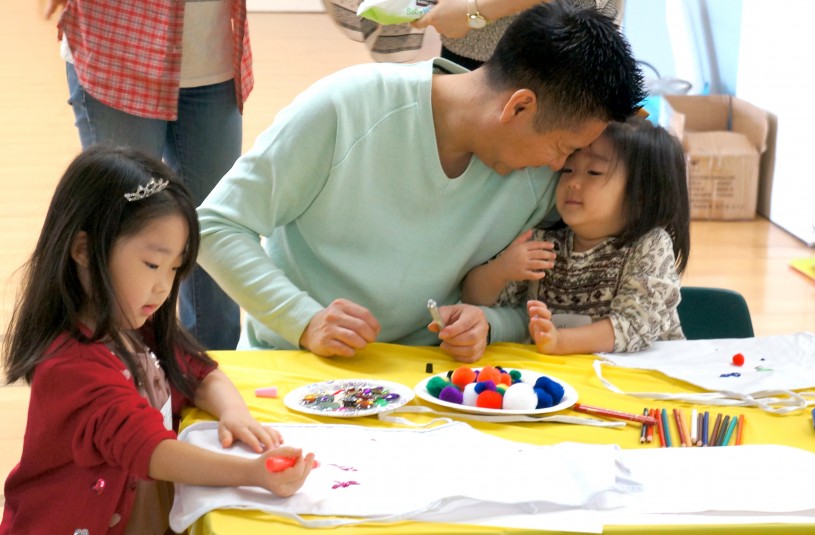
How did you become invested in this work?
I became invested in high school, I was involved with the Key Club, Leo Club, and Habitat for Humanity. At first, I joined clubs because all my friends were in them. Then, when we went out into the community to tutor children, give out food or build parts of a house, I saw the difference it made in the life of an individual. I wanted to find a career in changing and impacting individual's lives. In 2009, I joined KFAM as a part-time employee in the Child Care Food Program (CCFP). This is when I found out there were so many Koreans and Asians in need and I wanted to do something and be part of the solution.
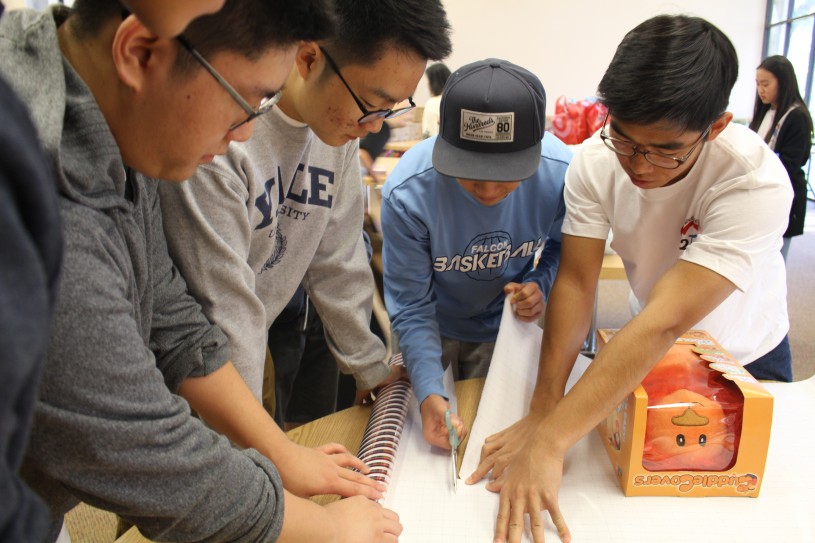
What kind of community do you want to live in?
I want to live in a community where we care about one another, help and support each other. There is a Korean proverb, “It takes a village to raise a child”, I believe everyone needs help at different aspects of their lives and everyone can offer help at different aspects of their lives. Together we can get through anything and together we will thrive.
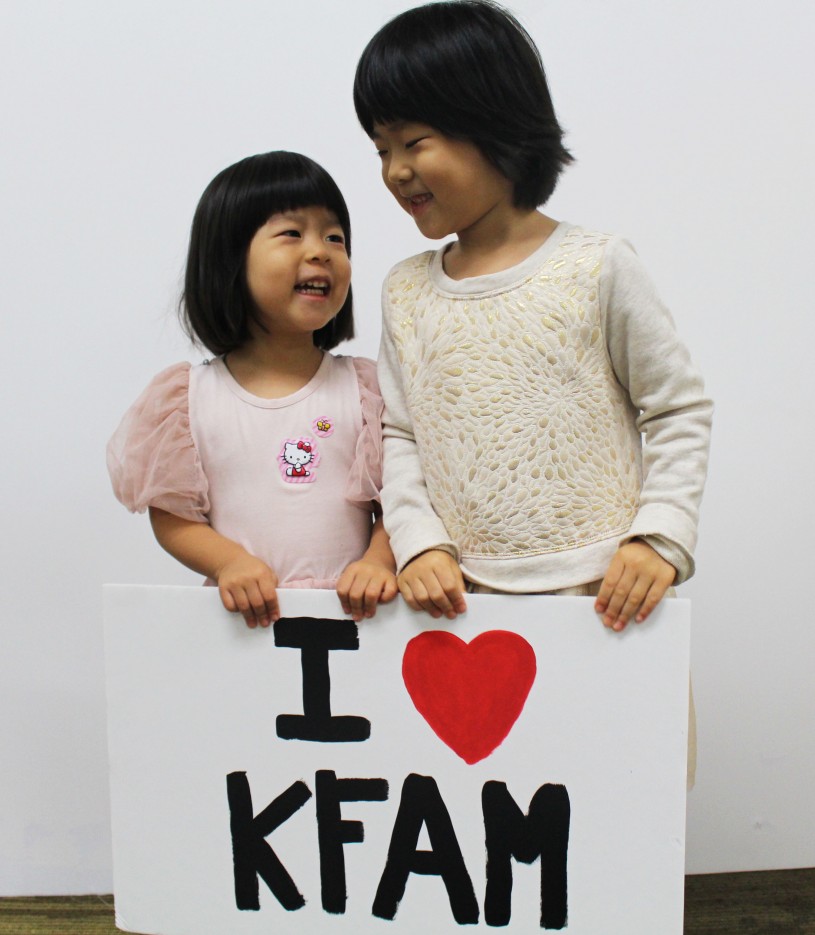
What is your favorite part about your job?
My favorite part about my job is the success stories I hear from my staff. When I hear about a client who graduates from our Clinical program and has a new perspective in his/her life because of our therapy sessions, it brings excitement and fulfillment. These stories fuel my heart and soul and recharge me.
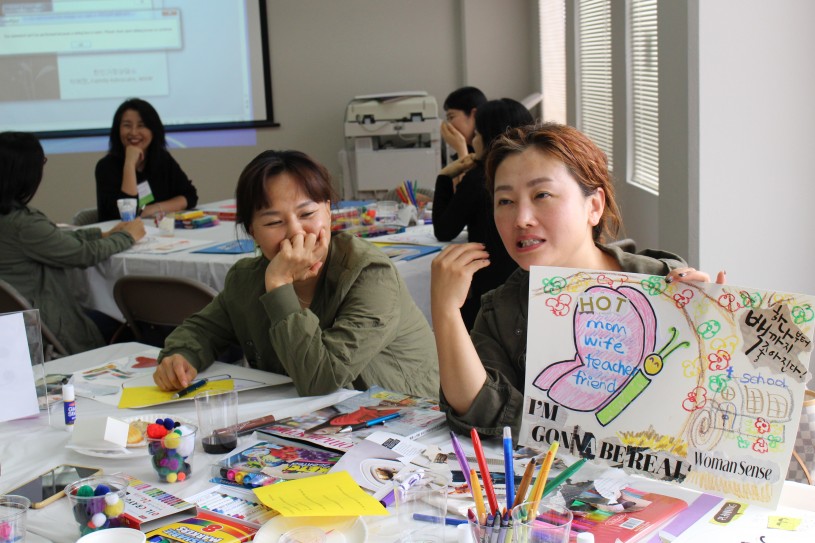
What was a moment that positively impacted you in your work?
When we first created our Asian Foster Family Initiative (AFFI) Program, I was really worried about how the community would view foster care and adoption due to the cultural stigma in Asia. And when we first started the program there were zero Korean foster parents in L.A. County, even though there are over 350,000 Koreans that live in L.A. County and up to 50 Korean children (600-800 Asian Children) in the system at any given time. I was blown away by the reception and love AFFI received from the community members. I remember the first year we received over 800 phone calls and had thousands of individuals and families coming to our information sessions and orientation to become foster parents. I saw how the community came together, moved together, and educated together to provide homes for children in need.
